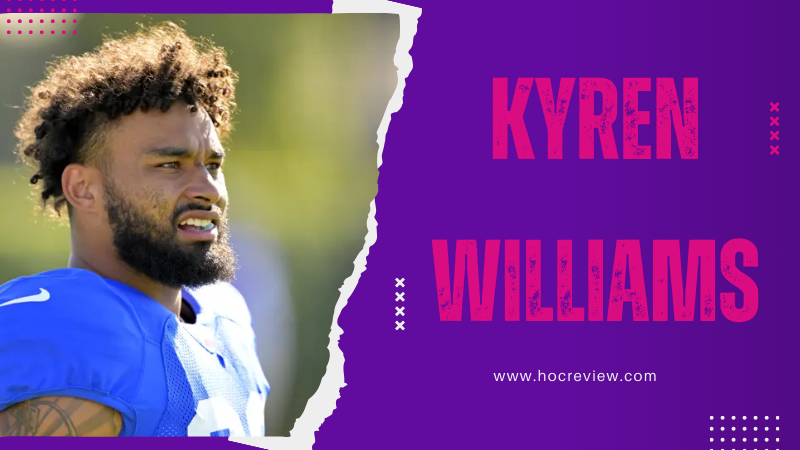As we dive into Matt Gaetz’s background and qualifications for former President Trump’s recent nomination as Attorney General, a major question arises: Is Matt Gaetz a lawyer?
This article, brought to you by hocreview, aims to explore Gaetz’s legal credentials, experience, and the potential impact of his appointment on the Department of Justice (DOJ).
With the role of Attorney General demanding extensive legal knowledge and experience, Gaetz’s qualifications—or perceived lack thereof—have led many to wonder whether he truly has the necessary expertise.
This analysis delves into Gaetz’s legal career, his controversial selection, and the reactions from both the Senate and the public.
What Legal Qualifications Does Matt Gaetz Have?
Gaetz’s journey into politics is clear, but his legal qualifications are a bit more complex. He holds a law degree from the College of William & Mary, which indeed qualifies him as a lawyer.
However, his career has been dominated by political roles rather than practicing law in a conventional setting.
In terms of his professional experience, Gaetz has primarily been a U.S. Representative, with limited hands-on legal practice.
This contrast is notable, as most past Attorneys General have had substantial experience as prosecutors, judges, or defense attorneys—roles that typically build a foundation for overseeing the DOJ.
Has Matt Gaetz Practiced Law Professionally?
While Gaetz is technically a lawyer, his legal career has largely consisted of political roles rather than typical courtroom or law firm experience. After law school, he swiftly entered the political arena, securing a spot in the U.S. House of Representatives.
Though this trajectory gave him insight into legislative matters, it contrasts with the experience of previous Attorneys General, who often bring years of courtroom or prosecutorial experience to the role.
In Congress, Gaetz did serve on committees that relate to justice and law, including the House Ethics Committee and the Subcommittee on the Weaponization of the Federal Government.
While his work there has touched on legal matters, the depth and relevance of his direct law practice experience remain in question.

How Gaetz’s Role as Attorney General Could Impact the DOJ
Gaetz’s nomination brings with it a vision for the Department of Justice that could significantly shift its operations and policies.
Known for his outspoken stance on government reform, Gaetz has criticized the DOJ and FBI on numerous occasions, claiming they operate with political bias.
His proposed reforms for the DOJ could include structural changes to limit perceived bias, which some critics see as political interference.
With such power over the department of justice’s investigative files, including those from his past investigations, Gaetz’s appointment raises concerns about transparency and oversight in federal law enforcement.
Why Did Trump Choose Matt Gaetz as Attorney General?
Given Gaetz’s strong political alignment with Trump, his nomination is less surprising. His loyalty to Trump and a shared vision for “de-weaponizing” the DOJ align with Trump’s own goals for his second term.
Gaetz’s conservative stance and support of Trump’s policy on immigration and government efficiency underscore the mutual benefits of this appointment.
However, the nomination was met with mixed reactions in the Senate. Some senators, while respecting Trump’s choice, have openly questioned Gaetz’s suitability.
The Senate confirmation process will undoubtedly bring these concerns to the forefront as Gaetz’s qualifications undergo intense scrutiny.
Get quick access to the latest news and trends by exploring our breaking news section.
Key Controversies and Ethics Investigations Related to Matt Gaetz
Gaetz’s political career has not been without controversy. Prior to his nomination, he faced investigations by both the DOJ and House Ethics Committee concerning allegations of sexual misconduct, possible drug use, and other ethical violations.
Although he has denied any wrongdoing and was not formally charged, these controversies continue to cloud his reputation.
If confirmed, Gaetz would gain access to sensitive DOJ records, including those from his own investigations.
This access could lead to conflicts of interest, as he would have oversight over past and potentially ongoing inquiries. Such a scenario raises questions about impartiality and how he would handle sensitive information.

How Does Gaetz’s Nomination Compare to Previous Attorneys General?
Historically, Attorneys General have brought substantial experience in law, often with records as high-ranking prosecutors, judges, or established defense attorneys. In comparison, Gaetz’s experience is distinct due to his limited legal practice and strong political orientation.
His nomination stands out as an unusual choice in this regard. Unlike his predecessors, whose legal expertise often spanned decades, Gaetz’s qualifications have drawn criticism from both political allies and opponents concerned with his ability to handle the demands of the role.
What Are the Next Steps in Gaetz’s Confirmation Process?
The Senate plays a key role in vetting Gaetz’s nomination. This process is likely to be rigorous, given the concerns about his background and ethical record.
If Gaetz faces significant opposition in the Senate, Trump may consider appointing him through a recess appointment—a move that would allow him to assume the role temporarily.
In any case, the Senate Judiciary Committee will be essential in evaluating whether Gaetz can effectively fulfill the responsibilities of Attorney General.
Observers are already predicting that his nomination will be met with both support and resistance, creating a highly charged atmosphere for the upcoming confirmation hearings.
Conclusion
Matt Gaetz’s nomination as Attorney General raises questions about his legal qualifications and the potential changes he may bring to the DOJ.
As readers, feel free to share your thoughts, comment, or explore more of our in-depth analyses at hocreview.com.







